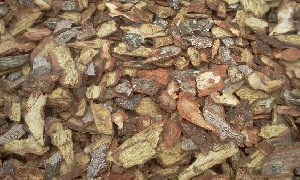Business News of Monday, 13 March 2017
Source: 3news.com
Danger! Upsurge in bitters producers threaten extinction of Ghana’s forest reserves
Large quantities of trees are harvested daily from Prakaw Forest Reserve to brew bitters, Salifu Baba Adams, a member of Forest Watch Ghana (FWG,) has revealed.
According to him, community members including women and children, living in Obogu, Komeso, and Odubi townships have made it a business venture to fell trees from the reserve located in the Asante Akim South District of the Ashanti Region, debark the trees and sell the barks to bitters producers including the Angel Group of Companies (producers of Adonko bitters) and Kasapreko Company Ltd.
Over the last few years, there has been a tremendous rise in the production and consumption of bitters in the country as the alcoholic beverage is believed to have numerous health benefits.
Speaking at Forest Watch Ghana’s 1st General Meeting in 2017 held in Larteh in the Eastern Region, Mr. Adams said that this business activity which started last year has seen a boom this year due to high patronage from the alcoholic beverage producers.
He explained that once the trees are felled, the community members debark them and package them in sacks.
The alcoholic beverage producers purchase the tree barks at a price of GH¢100 per 100kg sack.
He said once they have purchased large quantities of the barks of the tree, the alcoholic beverage producers use the barks to brew the bitters.
According to him, the most affected tree species are owama, tuatin, onsoro gya and ogyama.
Mr. Adams said this is a cause for concern because felling of trees in large quantities from forest reserves will have dire consequences on the environment.
“It’s alarming the rate at which trees are being felled on a daily basis to brew Adonko and other bitters. If nothing is done to stop this, it will lead to deforestation in the area,” he said.











